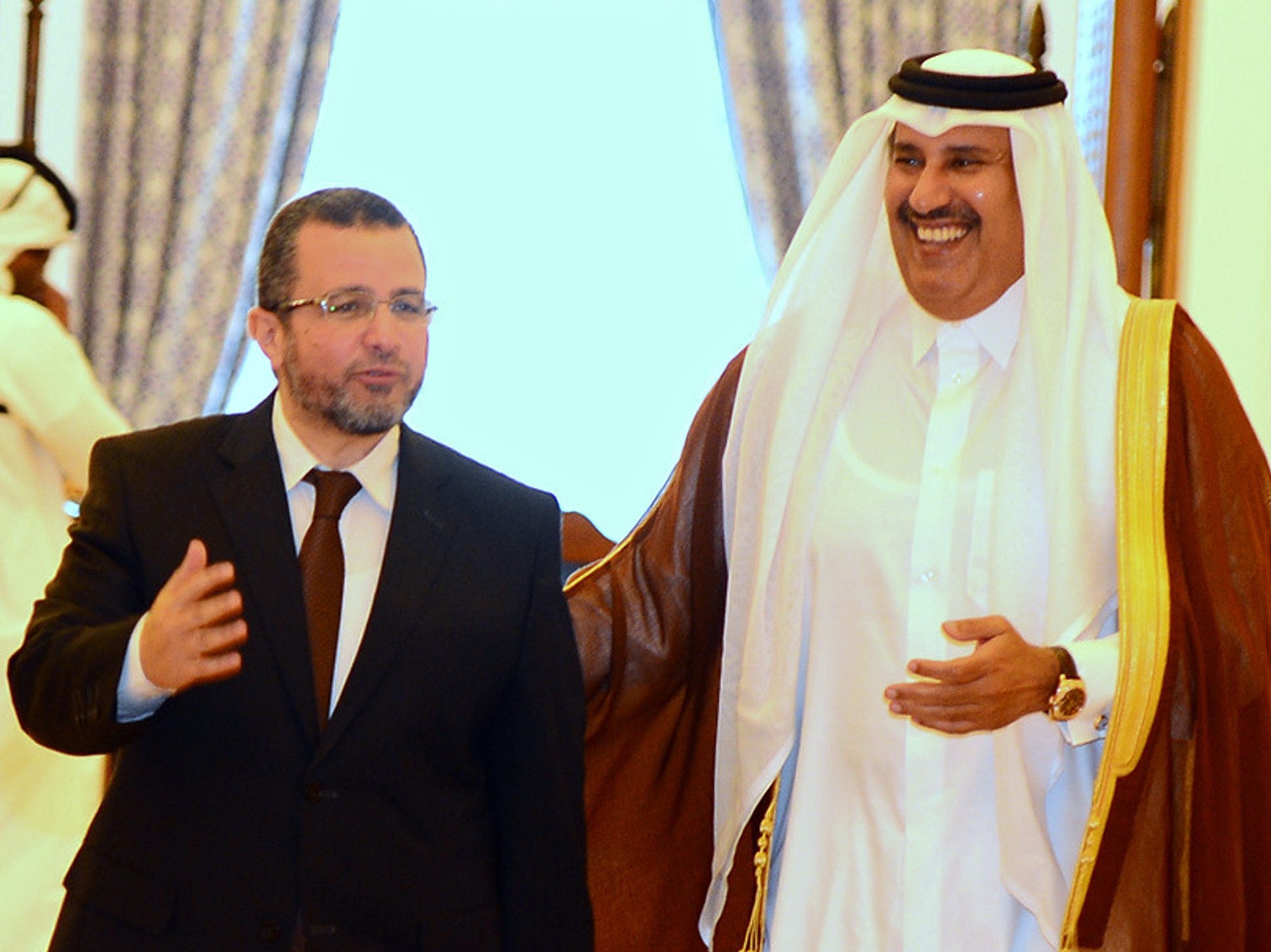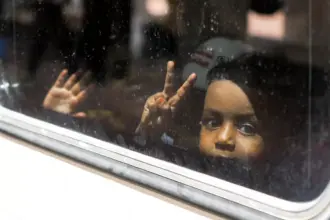RAFAH, Gaza: All day along the Rafah border Saturday, houses shook and shuttered as Israeli jets continued their three-week old campaign against the intricate network of smuggling tunnels that crisscross the Egypt-Gaza border.
The day’s bombing routine was remarkably consistent. The dull propeller whir of an unmanned drone would give way to the high-octane screeching of an F-16 fighter jet, which itself led to a high-pitched whistle and a thick, reverberating boom. Gazans would then toss a barely concerned eye to the sky, looking for the plume of smoke.
Far below the aerial circus, the effects of the tunnel campaign were playing out on the streets of south Gaza. While Israel is targeting the tunnels to stem the flow of illegal arms from Egypt into Gaza, it was also cutting off one of the strip’s most critical lifelines for food, water and gasoline.
“The tunnels are an alternative to ports, said Salah Hussein Bably, a 54-year-old Fatah official in Rafah, noting that Israel has kept Gaza’s ports sealed, preventing any commerce from flowing through them. “So if the tunnels are not here, the tragedy will grow.
“If Israel opened the ports, he added, “nobody is going to open the tunnels.
Sources on the ground, as well as a quick glance at any market in town, indicate that trade through the tunnels has been disrupted but not stopped. The markets are filled with goods that vendors gladly admit came through the tunnel system.
In the center of town, at a square called Midan Al-Nijma (Star Square), the Saturday market sits empty. One man explained that the weekly market had been closed until the end of the war, the bombed out shell of a high-rise arching into the sky behind him.
In front of the market stalls though, along the street, a bustling natural gas black-market was in full swing. Drums, and vats, and donkey carts had all gathered, merchants doling out liters worth of gas to waiting customers, hoping to fuel cars or restart generators since electricity had been cut to most of Rafah and most gas stations closed.
Tarek Al Wazir, as he asked to be called, was doing great business and turning unprecedented profit.
“It’s easy, he said of his business, “because we still get it from the tunnels.
With supply down and most gas stations shut, the going rate for gas had gone through the roof. A liter costs 2.5 Shekels before the war, roughly LE 3.5. That price was already high compared to the LE 1.10 rate in Egypt since the smugglers made sure to take their cut.
A liter of gas in Gaza today runs around 4 shekels, or LE 5.8.
The destruction of the smuggling tunnels has knocked out some food and water vendors while giving others control of the market. But even those still receiving shipments to their stores haven’t been able to profit like Al Wazir and other makeshift vendors might.
“There is not too much of a difference between a month ago and now because Hamas watches the market, said Ahmed Abu Arida.
Abu Arida noted that Hamas takes aggressive steps to intervene and ensure that the market is not overburdened by the throes of war.
“They punish the people by closing the market if they let the price rise, said Abu Arida. Said Siam, the Hamas official who was killed last week in an Israeli air strike, made control of the markets one of his final orders.
According to many citizens, though, the Israeli campaign will not spell the end of the tunnel system.
“They’re going to rebuild tunnels, said Abu Arida, “and they will keep rebuilding tunnels to get food and water.
Despite Hamas’ efforts to regulate prices, food is still in short supply, a fact which is being felt in Gaza’s hospitals.
“Dehydration is so severe, said Dr Norihiko Kuwayama, a Japanese psychiatrist working at Abu Youssef Al Najjar Hospital in Rafah. “Children eat something but it’s not good food.
The status of prices in Gaza is at a messy crossroad of military conflict, entrepreneurial capitalism, and Hamas intervention. While the future of prices in the strip is uncertain, there is little doubt that average Palestinians are finding it harder to get by.
“It’s harder, said Abu Rahi Al Shamala, who woke up several days ago to find his electronics store decimated by a bomb. “It was the last source to get food. And now it’s hard.


